July 26 stands as one of history’s most eventful days, witnessing the rise and fall of empires, groundbreaking discoveries, and moments that shaped our modern world across centuries of human achievement.

Politics and Government Events on July 26
1908 – Federal Bureau of Investigation Founded
United States Attorney General Charles Joseph Bonaparte issued a pivotal order establishing the Office of the Chief Examiner. This federal law enforcement agency would later become the renowned Federal Bureau of Investigation.
Bonaparte’s directive created America’s first centralized investigative force under federal jurisdiction. The organization would evolve into one of the world’s most influential law enforcement agencies.
1945 – Labour Party Wins British General Election
The Labour Party achieved a stunning landslide victory in the United Kingdom’s general election. Winston Churchill’s Conservative government fell despite his wartime leadership success.
Clement Attlee’s Labour government would implement sweeping social reforms including the National Health Service. The electoral upset demonstrated Britain’s desire for domestic change after years of wartime sacrifice.
1947 – National Security Act Creates Modern Defense Structure
President Harry Truman signed the National Security Act into law, fundamentally restructuring America’s defense establishment. The legislation created the Central Intelligence Agency, Department of Defense, and National Security Council.
The act established the United States Air Force as an independent military branch. This comprehensive reorganization shaped American national security architecture for decades to come.
1948 – Truman Desegregates US Military

President Harry Truman signed Executive Order 9981, officially ending racial segregation in the United States military. The historic directive mandated equal treatment and opportunity for all service members regardless of race.
Military leaders initially resisted the integration order, but Truman remained steadfast in his commitment. The policy became a crucial milestone in America’s civil rights movement.
1953 – Castro Launches Cuban Revolution

Fidel Castro led an unsuccessful assault on the Moncada Barracks in Cuba, sparking the Cuban Revolution. The failed attack became the founding moment of the revolutionary 26th of July Movement.
Castro’s bold gambit against Batista’s regime energized opposition forces throughout Cuba. The movement’s name commemorated this date as the beginning of revolutionary struggle.
1956 – Egypt Nationalizes Suez Canal
Egyptian President Gamal Abdel Nasser nationalized the Suez Canal following the World Bank’s refusal to fund the Aswan Dam project. The dramatic announcement triggered international condemnation and military intervention threats.
Britain and France viewed the canal’s nationalization as a direct challenge to their imperial interests. The crisis would escalate into the Suez War, marking the end of European colonial dominance.
1977 – Quebec Mandates French Language
The National Assembly of Quebec imposed French as the official language of the provincial government. This legislation strengthened Quebec’s linguistic identity within Canada’s federal structure.
The language law sparked heated debates about minority rights and provincial autonomy. Quebec’s francophone majority celebrated the measure as essential cultural protection.
2016 – Clinton Becomes First Female Presidential Nominee

Hillary Clinton secured the Democratic Party’s presidential nomination, becoming the first woman nominated by a major American political party. The Democratic National Convention in Philadelphia marked this historic milestone.
Clinton’s nomination shattered the highest glass ceiling in American politics. Her candidacy represented decades of women’s political advancement and gender equality progress.
Military and Naval History on July 26
1936 – Germany and Italy Support Franco
Germany and Italy decided to intervene in the Spanish Civil War, providing crucial military support to Francisco Franco’s Nationalist forces. This foreign intervention transformed the conflict into a European proxy war.
Nazi Germany used Spain as a testing ground for new military technologies and tactics. The intervention foreshadowed the broader European conflict that would erupt in World War II.
1941 – Battle of Grand Harbour Malta
British forces on Malta successfully destroyed an Italian Decima Flottiglia MAS attack during the Battle of Grand Harbour. Fort St Elmo Bridge was demolished during the fierce fighting.
Malta’s strategic position in the Mediterranean made it a crucial target for Axis forces. The successful defense preserved Britain’s vital naval base in the central Mediterranean.
1941 – Allies Freeze Japanese Assets
The United States, Britain, and Netherlands froze all Japanese assets and terminated oil shipments in response to Japan’s occupation of French Indochina. This economic warfare escalated tensions toward military conflict.
The oil embargo threatened Japan’s war machine and expansionist ambitions in Southeast Asia. Japanese leaders viewed the sanctions as an act of economic warfare requiring military response.
1944 – Red Army Liberates Lviv
The Soviet Red Army entered Lviv, capturing the major Ukrainian city from Nazi occupation forces. Tragically, only 300 Jews survived from the pre-war population of 160,000.
The liberation revealed the devastating extent of Holocaust atrocities in occupied Ukraine. Lviv’s recapture marked another step in the Red Army’s westward advance toward Berlin.
1945 – Potsdam Declaration Signed
Allied leaders signed the Potsdam Declaration, demanding Japan’s unconditional surrender and outlining post-war occupation terms. The ultimatum warned of “prompt and utter destruction” if Japan refused.
The declaration established the framework for Japan’s post-war democratization and demilitarization. Japan’s initial rejection of the terms led directly to the atomic bombings.
1945 – USS Indianapolis Delivers Atomic Bomb Components
The USS Indianapolis arrived at Tinian Island carrying enriched uranium and components for the Little Boy atomic bomb. The cruiser completed one of history’s most consequential military deliveries.
The ship’s cargo would soon devastate Hiroshima and end World War II. Tragically, the Indianapolis was sunk by a Japanese submarine shortly after completing this mission.
1953 – Korean War’s Final Battle
Australian soldiers from the 2nd Battalion, Royal Australian Regiment repelled Chinese assaults at The Hook during the Battle of Samichon River. The fighting occurred mere hours before the armistice agreement.
The Hook represented strategically vital high ground overlooking the Samichon River valley. Australian forces demonstrated exceptional courage in this war’s final major engagement.
Science and Discovery Milestones on July 26
1918 – Noether’s Theorem Presented
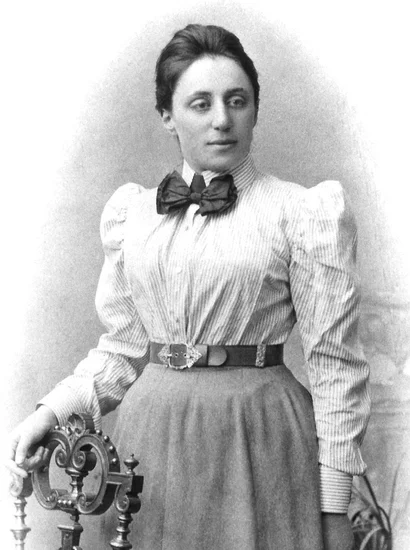
Emmy Noether’s groundbreaking paper on conservation laws and symmetries was presented at Göttingen University. Her theorem established fundamental connections between physical symmetries and conservation principles.
Noether’s work revolutionized theoretical physics by linking symmetries to conservation laws for energy, momentum, and angular momentum. Einstein praised her contributions as essential to modern physics understanding.
1958 – Explorer 4 Launched
NASA launched Explorer 4 as part of America’s ambitious space exploration program. The satellite contributed valuable data about Earth’s radiation environment and space weather phenomena.
Explorer 4’s scientific instruments measured cosmic radiation and magnetic field interactions. The mission advanced American space science capabilities during the early Space Race period.
1963 – First Geosynchronous Satellite Launched
Syncom 2 became the world’s first geosynchronous communications satellite, launched from Cape Canaveral on a Delta B rocket. The revolutionary technology enabled continuous communication coverage over specific regions.
Geosynchronous orbit allowed satellites to maintain fixed positions relative to Earth’s surface. This breakthrough made global telecommunications networks and weather monitoring systems possible.
1971 – Apollo 15 Moon Mission Begins
NASA launched Apollo 15, the first extended lunar exploration mission featuring the Lunar Roving Vehicle. The mission marked a new era of comprehensive lunar scientific investigation.
The lunar rover dramatically expanded astronauts’ exploration range across the Moon’s surface. Apollo 15’s enhanced scientific capabilities advanced understanding of lunar geology and formation.
2005 – Space Shuttle Discovery Returns
Space Shuttle Discovery launched on mission STS-114, NASA’s first flight following the Columbia disaster. The return-to-flight mission demonstrated NASA’s commitment to space station construction.
Discovery’s successful launch restored confidence in the Space Shuttle program after extensive safety improvements. The mission delivered crucial supplies and equipment to the International Space Station.
Cultural and Arts Events on July 26
1951 – Alice in Wonderland Premieres
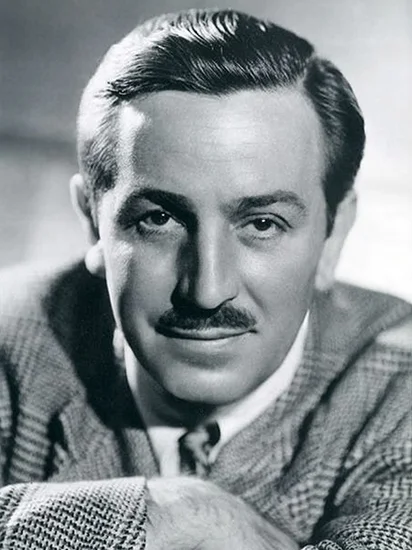
Walt Disney’s thirteenth animated film, Alice in Wonderland, premiered in London to international acclaim. The adaptation brought Lewis Carroll’s beloved characters to vivid animated life.
Disney’s artistic interpretation featured innovative animation techniques and memorable musical sequences. The film became a cornerstone of Disney’s animated classics collection.
1981 – MTV Launches Music Television
Music Television (MTV) began broadcasting, revolutionizing popular culture with continuous music video programming. The network’s launch fundamentally changed how audiences consumed music and entertainment.
MTV’s innovative format created new opportunities for artists to reach global audiences through visual storytelling. The network became a defining cultural force for multiple generations.
1990 – Americans with Disabilities Act Signed
President George H.W. Bush signed the Americans with Disabilities Act, landmark legislation prohibiting discrimination against disabled individuals. The comprehensive civil rights law transformed accessibility standards nationwide.
The ADA mandated equal access to employment, public accommodations, and government services. This groundbreaking legislation improved millions of lives and established America as a global accessibility leader.
Religious and Social Events on July 26
1953 – Short Creek Polygamy Raid
Arizona Governor John Howard Pyle ordered a massive law enforcement crackdown on polygamist residents of Short Creek. The raid targeted members of fundamentalist Mormon communities practicing plural marriage.
Over 400 officers participated in the operation, arresting 122 men and 263 women and children. The controversial raid sparked national debate about religious freedom and government authority.
1963 – Skopje Earthquake Devastates Yugoslavia

A powerful earthquake struck Skopje, Yugoslavia, killing 1,100 people and destroying much of the city. The disaster prompted massive international relief efforts and urban reconstruction projects.
The earthquake demolished 80% of Skopje’s buildings, leaving 200,000 people homeless. International architects and planners helped rebuild the city with modern earthquake-resistant structures.
2009 – Boko Haram Launches First Major Attack
The militant Nigerian Islamist group Boko Haram attacked a police station in Bauchi, triggering widespread violence across multiple cities. The assault marked the beginning of sustained terrorist activities.
Nigerian security forces responded with massive operations, resulting in hundreds of casualties. The conflict would escalate into one of Africa’s most persistent security challenges.
Business and Economic Events on July 26
1946 – Aloha Airlines Begins Service
Aloha Airlines commenced operations from Honolulu International Airport, pioneering commercial aviation in Hawaii. The airline connected the Hawaiian Islands with reliable passenger service.
Aloha’s colorful aircraft and friendly service became synonymous with Hawaiian hospitality. The airline played a crucial role in developing Hawaii’s tourism industry and inter-island transportation.
1963 – Japan Joins OECD
The Organisation for Economic Co-operation and Development voted to admit Japan as a member nation. This recognition acknowledged Japan’s remarkable post-war economic recovery and international integration.
Japan’s OECD membership marked its transition from war-torn nation to major economic power. The country’s inclusion strengthened international economic cooperation and trade relationships.
1990 – Computer Crime Prosecution Begins
A federal grand jury indicted Cornell University student Robert T. Morris Jr. for releasing the Morris worm computer virus. He became the first person prosecuted under the Computer Fraud and Abuse Act.
The Morris worm infected thousands of computers across early internet networks. This landmark case established legal precedents for prosecuting cybercrime in the digital age.
Transportation and Infrastructure on July 26
1945 – HMS Vestal Final Naval Loss
HMS Vestal became the last British Royal Navy ship sunk during World War II. The minesweeper’s loss marked the end of Britain’s naval casualties in the global conflict.
The ship struck a mine while conducting dangerous minesweeping operations. Vestal’s crew demonstrated the Royal Navy’s commitment to clearing sea lanes for post-war shipping.
1993 – Asiana Airlines Flight 733 Crashes

Asiana Airlines Flight 733 crashed into Mount Ungeo during its third landing attempt at Mokpo Airport, South Korea. The tragedy killed 68 of the 116 people aboard.
The accident highlighted challenges of flying in mountainous terrain with limited visibility. Aviation authorities implemented enhanced approach procedures and pilot training following the investigation.
2016 – Solar Impulse 2 Completes World Flight
Solar Impulse 2 became the first solar-powered aircraft to circumnavigate the Earth, completing an extraordinary technological achievement. The experimental aircraft relied entirely on solar energy for propulsion.
The historic flight demonstrated renewable energy’s potential for aviation applications. Solar Impulse 2’s journey inspired innovations in sustainable transportation and clean energy technology.
Sports and Recreation on July 26
1999 – Kargil Conflict Ends
The Kargil conflict officially concluded with the Indian Army announcing complete eviction of Pakistani intruders from Indian territory. The high-altitude warfare tested both nations’ military capabilities.
Indian forces recaptured strategic peaks along the Line of Control in treacherous mountain conditions. The conflict’s end restored stability to the volatile Kashmir region.
2005 – Mumbai Receives Record Rainfall
Mumbai received 99.5 centimeters of rain within 24 hours, creating catastrophic flooding that killed over 5,000 people. The unprecedented deluge paralyzed India’s financial capital.
The extreme weather event exposed Mumbai’s inadequate drainage infrastructure and urban planning challenges. The disaster prompted major improvements to the city’s flood management systems.
2024 – Olympic Swimmer Expelled from Paris Games
Brazilian swimmer Ana Carolina Vieira was expelled from the 2024 Paris Olympics for violating team rules by leaving the Olympic Village without permission. The disciplinary action shocked the swimming community.
Olympic officials enforced strict behavioral standards to maintain competition integrity. Vieira’s expulsion highlighted the importance of athlete conduct during international competitions.
Notable Births on July 26
1928 – Stanley Kubrick Born

Stanley Kubrick entered the world in New York City, destined to become one of cinema’s most influential directors. His perfectionist approach and visual innovation would revolutionize filmmaking.
Kubrick’s meticulous attention to detail created masterpieces like “2001: A Space Odyssey” and “A Clockwork Orange.” His films continue inspiring directors and challenging audiences worldwide.
1943 – Mick Jagger Born

Michael Philip Jagger was born in Dartford, England, later becoming the legendary frontman of The Rolling Stones. His dynamic stage presence and distinctive voice defined rock and roll performance.
Jagger’s rebellious energy and musical innovation helped establish rock music as a dominant cultural force. His career spanning over six decades makes him one of music’s most enduring icons.
1945 – Helen Mirren Born

Helen Mirren was born in London, England, beginning a distinguished acting career spanning stage, film, and television. Her versatility and commanding presence earned international acclaim.
Mirren’s portrayal of Queen Elizabeth II in “The Queen” earned her an Academy Award. Her performances consistently demonstrate remarkable depth and artistic excellence.
1949 – Roger Taylor Born
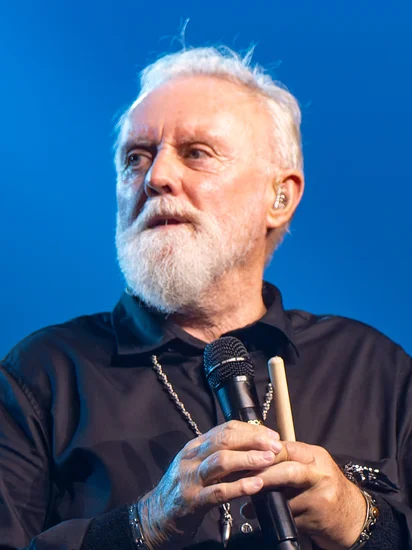
Roger Meddows Taylor was born in Norfolk, England, becoming the drummer for the legendary rock band Queen. His powerful drumming and vocal harmonies contributed to Queen’s distinctive sound.
Taylor’s songwriting talents produced hits like “Radio Ga Ga” and “A Kind of Magic.” His musical versatility extended beyond drumming to include keyboards and guitar.
1953 – John Howard Born

John Winston Howard was born in Sydney, Australia, later serving as the country’s 25th Prime Minister. His conservative leadership shaped Australian politics for over a decade.
Howard’s economic policies and international relations defined Australia’s role in the Asia-Pacific region. His tenure included significant domestic reforms and strong alliance building.
1964 – Sandra Bullock Born

Sandra Annette Bullock was born in Arlington, Virginia, becoming one of Hollywood’s most beloved actresses. Her combination of comedy and drama skills earned both critical and commercial success.
Bullock’s performances in “Speed,” “Gravity,” and “The Blind Side” demonstrated her remarkable range. Her Academy Award win recognized her exceptional talent and screen presence.
1967 – Jason Statham Born
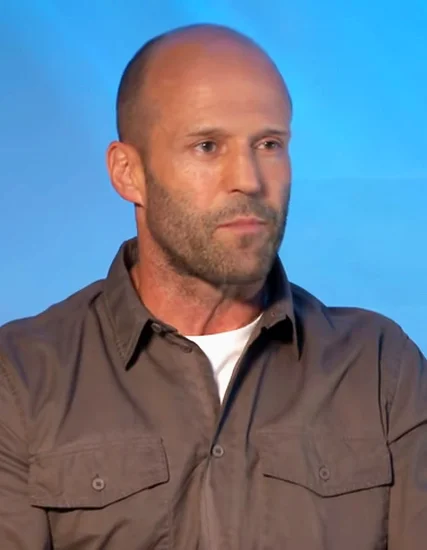
Jason Statham was born in Shirebrook, England, becoming an international action film star. His athletic background and martial arts skills created a new archetype for action heroes.
Statham’s roles in “The Transporter” series and “Fast & Furious” franchise established him as a leading action star. His performances combine physical intensity with charismatic screen presence.
1975 – Liz Truss Born

Elizabeth Mary Truss was born in Oxford, England, later becoming the United Kingdom’s Prime Minister. Her rapid rise through Conservative Party ranks demonstrated exceptional political ambition.
Truss’s brief tenure as Prime Minister was marked by economic turbulence and political controversy. Her leadership style and policy decisions significantly impacted British politics.
1980 – Jacinda Ardern Born

Jacinda Kate Ardern was born in Hamilton, New Zealand, becoming the country’s youngest Prime Minister at age 37. Her compassionate leadership style gained international recognition.
Ardern’s response to the Christchurch shooting and COVID-19 pandemic demonstrated exceptional crisis management skills. Her empathetic approach redefined modern political leadership.
Notable Deaths on July 26
1925 – William Jennings Bryan Dies
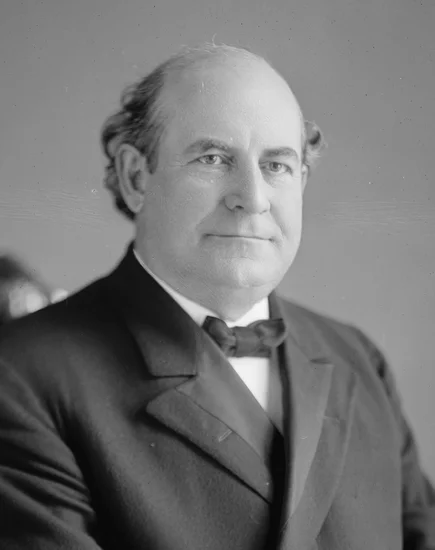
William Jennings Bryan, the influential American politician and orator, died in Dayton, Tennessee, shortly after the famous Scopes Trial. His populist rhetoric and religious convictions shaped American political discourse.
Bryan’s three presidential campaigns championed farmers and workers against industrial monopolies. His final public appearance defending biblical literalism marked the end of an era in American politics.
1952 – Eva Perón Dies
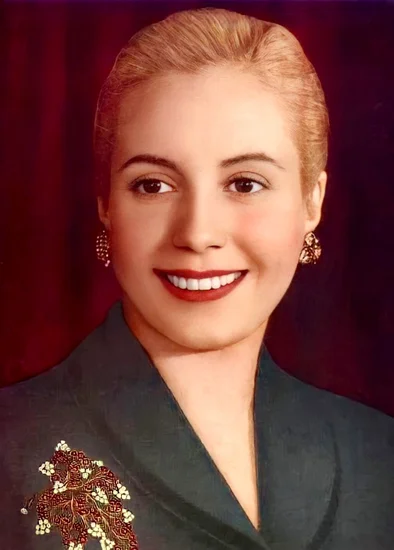
Eva Perón, Argentina’s beloved First Lady and champion of women’s rights, died in Buenos Aires at age 33. Her passionate advocacy for the poor and women’s suffrage transformed Argentine society.
Perón’s political influence extended far beyond ceremonial duties, making her a powerful force in Argentine politics. Her death sparked national mourning and cemented her status as an enduring cultural icon.
1957 – Carlos Castillo Armas Assassinated

Carlos Castillo Armas, the military dictator of Guatemala, was assassinated in Guatemala City. His death ended a controversial regime that had overthrown the democratically elected government.
Castillo Armas had come to power through a CIA-sponsored coup in 1954. His assassination highlighted the political instability that plagued Guatemala throughout the Cold War period.
1971 – Diane Arbus Dies

Diane Arbus, the groundbreaking American photographer, died in New York City at age 48. Her intimate portraits of marginalized communities challenged conventional photography and social norms.
Arbus’s work explored themes of identity, alienation, and human vulnerability with unprecedented honesty. Her photographs continue influencing contemporary artists and documentary photographers worldwide.
1984 – Ed Gein Dies
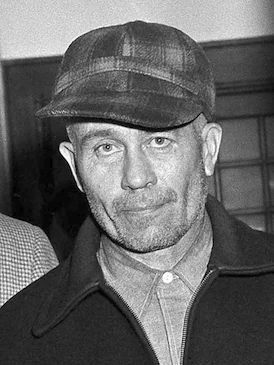
Ed Gein, the notorious American serial killer, died in Wisconsin at age 77. His gruesome crimes inspired fictional characters including Norman Bates and Leatherface in horror films.
Gein’s disturbing case contributed to the public fascination with serial killers in popular culture. His psychological profile helped law enforcement develop criminal profiling techniques.
2017 – June Foray Dies

June Foray, the legendary voice actress known as the “First Lady of Voice Acting,” died in Los Angeles at age 99. Her career spanned over seven decades of animated entertainment.
Foray voiced iconic characters including Rocky the Flying Squirrel and Granny from Warner Bros. cartoons. Her contributions to animation earned her multiple Emmy Awards and industry recognition.
2020 – Olivia de Havilland Dies

Olivia de Havilland, the last surviving star of “Gone with the Wind,” died in Paris at age 104. Her distinguished career included two Academy Awards and numerous classic film performances.
De Havilland’s legal battle against the studio system created the “de Havilland Law” protecting actors’ rights. Her courage in challenging Hollywood’s contract system benefited countless performers.
2023 – Sinéad O’Connor Dies

Sinéad O’Connor, the Irish singer-songwriter known for her powerful voice and controversial activism, died in London at age 56. Her music and political statements challenged religious and social conventions.
O’Connor’s rendition of “Nothing Compares 2 U” became a global phenomenon. Her fearless advocacy for abuse victims and social justice made her both celebrated and criticized.
Holidays and Observances on July 26
Independence Day (Liberia)
Liberia celebrates its independence from the American Colonization Society in 1847. The West African nation became the first independent republic in Africa established by freed American slaves.
Liberian independence represented hope for African Americans seeking freedom from American slavery and discrimination. The country’s unique history connects American and African experiences of liberation.
Day of the National Rebellion (Cuba)
Cuba commemorates the beginning of the Cuban Revolution with the failed attack on Moncada Barracks in 1953. The date marks Fidel Castro’s first attempt to overthrow the Batista government.
The revolutionary movement adopted the name “26th of July Movement” to honor this pivotal moment. Cuban celebrations recognize the sacrifice of revolutionaries who died fighting for independence.
Kargil Victory Day (India)
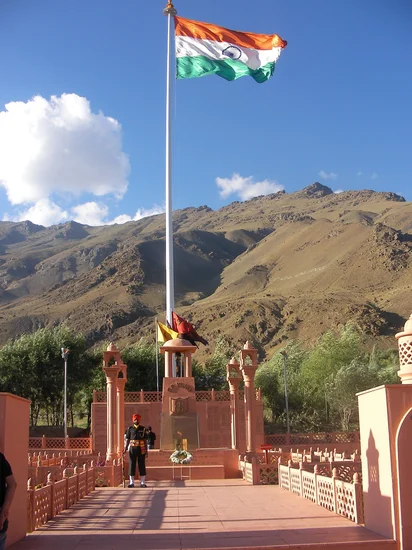
India observes Kargil Victory Day to honor soldiers who died during the 1999 Kargil conflict with Pakistan. The day commemorates the successful recapture of strategic positions in the Kashmir region.
Indian armed forces demonstrated exceptional courage in high-altitude warfare conditions. The observance honors military sacrifice and celebrates national defense achievements.
